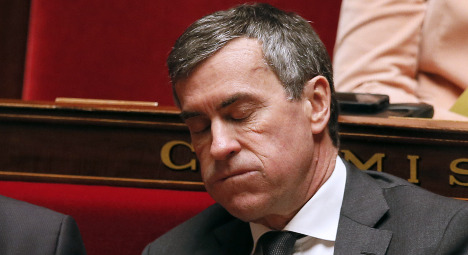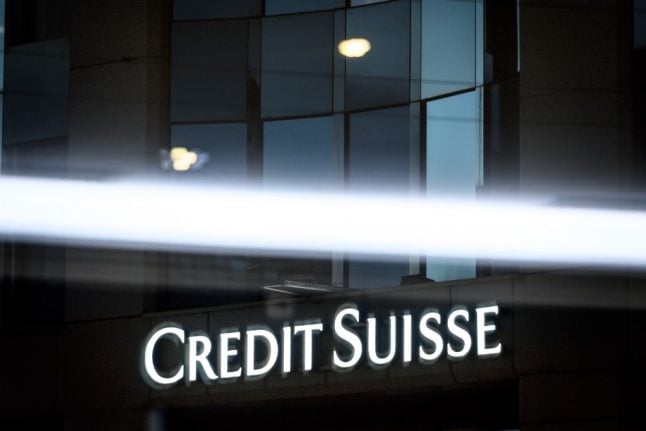He was subsequently charged with the offence of "laundering the proceeds of tax fraud".
French Budget Minister Jérôme Cahuzac resigned last month after prosecutors announced a probe into a UBS bank account in Geneva he allegedly used to hide assets from the tax authorities.
At his own request, Cahuzac was interviewed by the two French judges in charge of the case on Tuesday afternoon.
After admitting to holding foreign bank accounts the ex-minister was charged with "laundering the proceeds of tax fraud".
In a statement released after the hearing Cahuzac, who had up until today refuted the allegations, describing them as "crazy", issued an apology and said he was 'devastated by guilt'.
The minister, who faces five years in prison and a fine of up to €375,000 said he had been "caught up in a spiral of lies and lost his way."
"I apologize for the damage I have caused to my parliamentary colleagues and my constituents, I wish to convey my sincere and deepest regrets to the French people," the former minister and key ally of President François Hollande said.
"I have also disappointed my colleagues, my friends and my family," Cahuzac said.
"I met the two judges today. I confirmed to them the existence of the account," he said.
"I also told them that I have already instructed that all assets deposited in this account, around €600,000, be transferred to my bank account in Paris.
"It was an indescribable mistake to the think that I could avoid confronting a past that I wanted to consider behind me.
"I will now face this reality with all transparency".
Cahuzac's resignation was described by political commentators as the first crisis of Hollande's presidency, which looks only set to deepen now that the former Socialist Party heavyweight has been charged.
Cahuzac had been leading the government's charge against wealthy French citizens evading taxes through foreign accounts.
In a statement released shortly after Cahuzac's admission, Hollande said the minister "had committed an inexcusable moral error" by denying the facts.
"The president takes the admissions of Jérôme Cahuzac with great seriousness," the statement added.
Cahuzac stepped down last month hours after prosecutors announced a full investigation into claims by the Médiapart news website that he had an undeclared account with UBS until 2010.
The prosecutors said they believed Cahuzac was the man heard discussing the alleged account in a taped conversation which the investigative site used to substantiate its report.
Médiapart has reported that Cahuzac held funds in the Swiss account until 2010 and had, in breach of French law, failed to declare the account to the national tax authorities.
According to Mediapart, in the recorded conversation with one of his aides, Cahuzac voices concern about the UBS account coming to light but claims he has "dealt with the matter".
Médiapart alleged that the contents of the Swiss account were transferred to Singapore.
Reports that Cahuzac had requested a hearing with the judges was broken by satirical newspaper Le Canard Enchâiné.
According to the newspaper, Cahuzac opened an account at a branch of the establishment Reyl & Co. in Singapore, after closing a first bank account at UBS in Switzerland in the late 2000s.
Paris Match reported earlier that the politician arranged for the transfer to Singapore via Reyl's head office in Geneva.
Reyl, a private bank established 40 years ago by Frenchman Dominique Reyl, is specialized in finding "offshore" banking solutions for wealthy French citizens, according to the magazine.



 Please whitelist us to continue reading.
Please whitelist us to continue reading.
Member comments